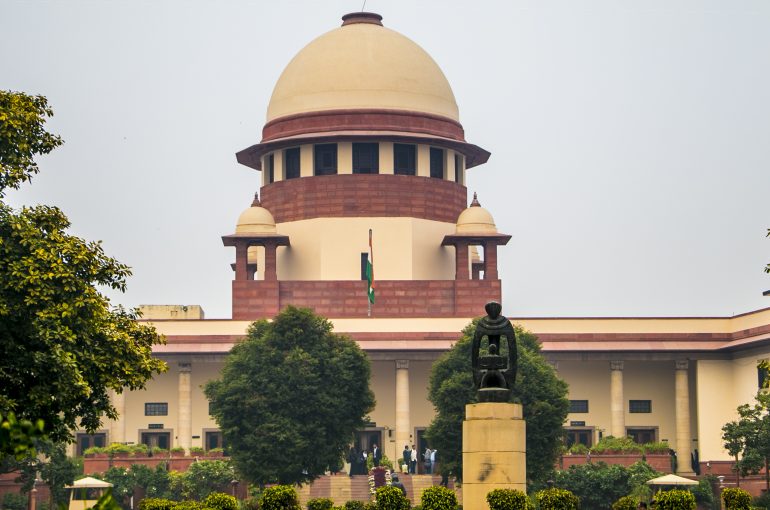MISUSE OF CRIMINAL LAW FOR DEBT RECOVERY: SUPREME COURT CRITICIZES HIGH COURT’S IGNORANCE IN QUASHING PETITION CASE

INTRODUCTION
In a significant Judgment delivered on 4th August 2025, the Supreme Court of India strongly deprecated the misuse of criminal law for enforcing civil liabilities in commercial disputes. The case of M/s Shikhar Chemicals v. State of U.P. & Anr [SLP (Criminal) No. 11445 of 2025] (Justices J.B. Pardiwala and J.R. Mahadevan] arising from a failed business transaction, prompted the Apex Court to set aside an order of the Allahabad High Court that allowed the continuation of criminal proceedings despite the matter being clearly civil in nature. The Court not only upheld established legal principles distinguishing civil breach from criminal offences but also took the extraordinary step of directing administrative consequences against the erring High Court Judge. This ruling serves as a stark warning against the growing trend of criminalising commercial defaults.
BRIEF FACTS
The dispute arose out of a commercial transaction between M/s Lalita Textile Concern (Complainant) and M/s Shikhar Chemicals (Accused), which had ongoing business relations involving the supply of yarn. The Complainant alleged that goods worth ₹52,34,385/- were supplied between April and July 2019, of which ₹47,75,000/- was paid by the accused. An amount of ₹4,59,385/- remained unpaid, and interest of ₹7,23,711/- accrued on this outstanding sum.
After repeated unsuccessful attempts to recover the dues, including through legal and GST proceedings, the Complainant filed a private criminal complaint. The Magistrate, after conducting an inquiry under Section 202 CrPC, took cognizance and issued process under Section 406 IPC (Criminal Breach of Trust). The Accused challenged this Summoning Order by filing an application under Section 482 CrPC before the Allahabad High Court. The High Court, however, dismissed the Application, prompting the present Special Leave Petition before the Supreme Court.
ISSUE BEFORE THE COURT
Whether criminal proceedings under Section 406 IPC (criminal breach of trust) could be sustained in a purely civil dispute involving non-payment of dues under a commercial transaction.
ANALYSIS OF THE JUDGMENT
The Supreme Court, through a Bench comprising Justice J.B. Pardiwala and Justice R. Mahadevan, delivered a scathing critique of both the Magistrate and the High Court. The Court observed that: “The judge concerned has not only cut a sorry figure for himself but has made a mockery of justice.”
NATURE OF THE DISPUTE: CIVIL, NOT CRIMINAL
The Supreme Court observed that the dispute stemmed from a sale transaction in which goods had been supplied, part payments were made, and an outstanding amount remained unpaid. However, this by itself did not fulfil the statutory requirement of “entrustment” under Section 406 of the IPC. Referring to the landmark decision in State of Gujarat v. Jaswantlal Nathalal (1968) 2 SCR 408, the Court reiterated that a simple sale does not create a fiduciary relationship capable of constituting entrustment, noting that “the term ‘entrustment’ implies that ownership of the property remains with the person delivering it.” As no entrustment or fiduciary duty was established on the facts, the essential ingredients of criminal breach of trust were found to be lacking.
ERROR IN HIGH COURT’S REASONING
The Court severely criticized the High Court’s approach, especially its justification that civil recovery would be a slow and financially burdensome process for the Complainant, and thus, criminal proceedings could be pursued. In paragraph 12 of the High Court’s order, it had observed:
“It would seem like good money chasing bad money… if this Court allows the matter to be referred to civil court… O.P. No.2 would suffer irreparable loss.”
Calling this reasoning “shocking” and a “travesty of justice,” the Supreme Court held that civil hardship cannot justify the institution or continuation of criminal proceedings when the alleged conduct does not meet the threshold for criminality.
CONSEQUENCES FOR THE JUDICIAL OFFICER
In a rare and stern move, the Supreme Court took judicial notice of repeated poor judicial performance by the concerned High Court Judge and issued the following directions:
- The matter was remanded for fresh consideration to a different Bench.
- The Chief Justice of the Allahabad High Court was requested to:
- Withdraw all criminal jurisdiction from the concerned Judge.
- Ensure he sits with a senior judge if assigned to any Bench.
- Prevent the Judge from being assigned criminal determination until retirement.
These measures were deemed necessary as the present order was not an isolated instance of error, but part of a broader pattern of judicial misapplication by the concerned Judge.
CONCLUSION
This Judgment reinforces the long-standing principle that criminal law must not be used as a tool for debt recovery in civil transactions. The Supreme Court’s intervention not only rectifies a judicial misstep but also sends a strong message to trial courts and High Courts to exercise their powers responsibly, especially while invoking criminal process in commercial disputes.
Moreover, the Court’s unprecedented censure of a sitting High Court judge serves as a reminder that judicial accountability is intrinsic to the preservation of public faith in the justice system. The case is also a significant contribution to jurisprudence concerning the abuse of criminal process and the delineation of civil and criminal liabilities.
Note- The matter is scheduled for rehearing today, and we shall cover any further developments as and when they occur
SARTHAK KALRA
Senior Legal Associate
The Indian Lawyer & Allied Services
Please log onto our YouTube channel, The Indian Lawyer Legal Tips, to learn about
various aspects of the law. Our latest Video, titled- “What Is Impeachment? Legal
Process to Remove Judges and Officials in India| Advocate Sushila Ram Varma”
can be viewed at the link below:





































Leave a Reply